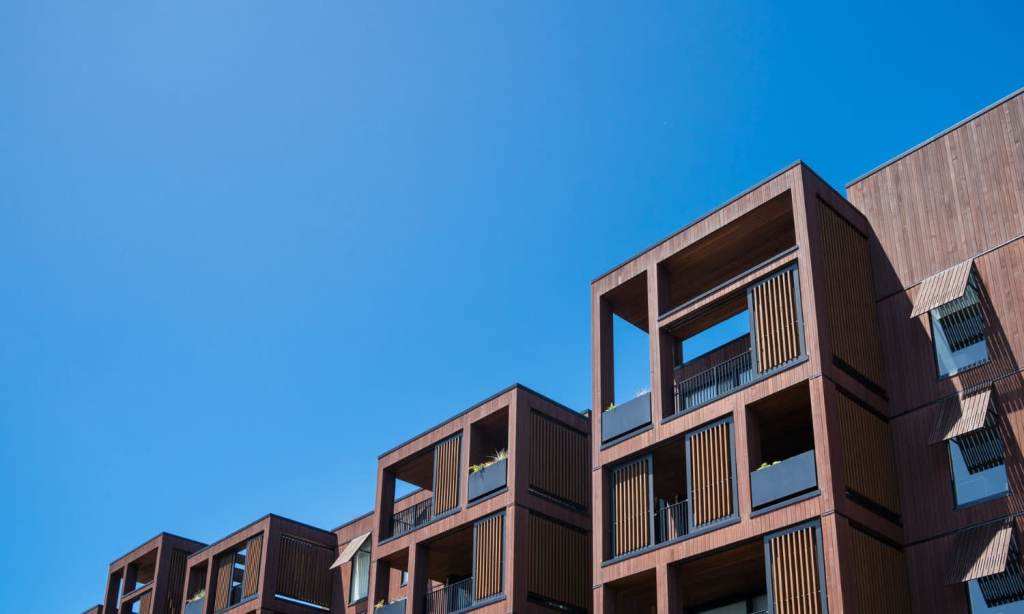Lloyd Edge is the director and founder of Aus Property Professionals. His new book, Buy Now, is the ultimate guide to owning and investing in property.
It’s no secret that housing affordability has become an issue for many Australians, particularly those living in capital cities such as Sydney, Melbourne and Brisbane. Whilst house prices might be falling in these areas, owning your own home is still out of reach for many first home buyers trying to get their foot on the property ladder.
In our recent federal election, housing affordability was a contentious topic, with both sides proposing their solutions to help more people purchase their first home. For a select few, Labor’s proposed ‘Help To Buy’ scheme will see the government contribute 40% towards the value of a house, meaning that you could potentially only need a 2% deposit to buy a home.
One option available to potential investors to help them break into an increasingly challenging property market is through using a SMSF (self-managed super fund). Note that you cannot use a regulated super fund, such an industry or a retail super fund, to buy property.
The benefits of a SMSF is that it allows you to invest in a wider range of assets than other super funds let you do, however, there are very strict rules around what you can and can’t do with investment properties. For example, the property has to be rented out at market rate and fund members or their relatives are not allowed to live in the property.
My own property journey began when I was 28 and bought a one-bedroom unit on a music teacher’s salary of no more than $70,000 per year. In almost 20 years, through a lot of hard work and perseverance, I’ve built up my portfolio to 18 properties worth $15 million (you can read more about my story in my new book, Buy Now). While I still believe that anyone can break into the property market with the right strategy, it has become considerably more challenging for this generation to get their foot on the ladder at all.
So, should you consider using a SMSF to help you buy your first investment property? I’ll discuss some of the pros and cons below so you can make up your own mind about what the best outcome might be for you.
Advantages
You Don’t Need to Save (As Much) for a Deposit
As the cost of living keeps rising, people are finding it increasingly difficult (maybe even impossible) to save up for their first home deposit. Using your super to buy a house might help you get into the property market sooner rather than later, giving a lot of young families the extra leg up they need to buy their very first home.
Your Super Is Your Own Money
If you use your super to buy a house, you’re still using your own savings and therefore you will own 100% of your home outright once the mortgage is paid off. For most people, a house is likely to be one of the most important financial assets you’ll ever own, so this decision will pay off in the long run.
It’ll Set You Up for the Long Run
Following on from my previous point, with property values doubling every 10-13 years or so, owning your own home will set you up well for your financial future.
Disadvantages
Your Super Won’t Be the Same
Even if you manage to pay the money back over time, due to compound interest your super won’t grow to the same level it could have been. However, what you would lose in potential super you should make up for in the value of your investment property down the track, and if you sell the house, you can repay the value of the deposit plus capital gains into your super fund.
You Won’t Get Diversification
One of the biggest advantages of super is that it is diversified across a range of investments and asset classes, ensuring that if anything goes wrong with one specific asset you don’t lose all your savings. However, when you invest all your money into a single house you lose that diversification, and some of the tax advantages provided by super.
Super Probably Won’t Cover Everything
This one is dependent upon how much super you have in your fund. If you’re under the age of 30, most likely your super will be enough for a deposit on an entry level house (if your income can sustain the repayments, of course) however it won’t cover all the additional, upfront costs such as stamp duty, legal fees, and building and pest inspections. If you’re buying a unit in an apartment block, you’ll also have to pay strata fees and for a strata report.
Bottom Line
At the end of the day, whether you should use a SMSF to buy an investment property all comes down to your individual circumstances, your financial priorities, and whether you think it would be beneficial for you in the long run. Buying an investment property, or building up a portfolio, is a dream for many Australians, and with perseverance, hard work and the right strategy it’s still possible for everyday Aussies to break into the property market.
Read more stories from The Latch and subscribe to our email newsletter.







